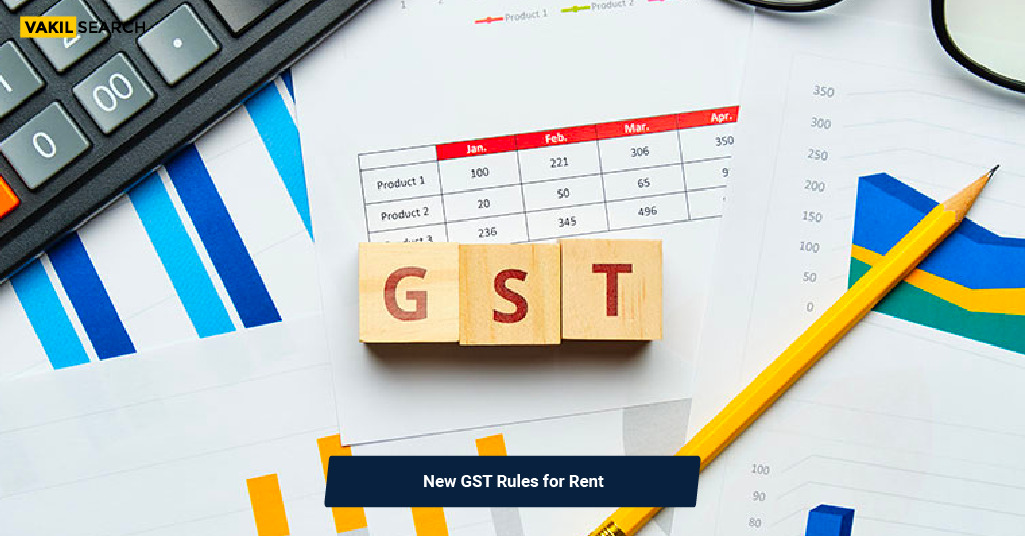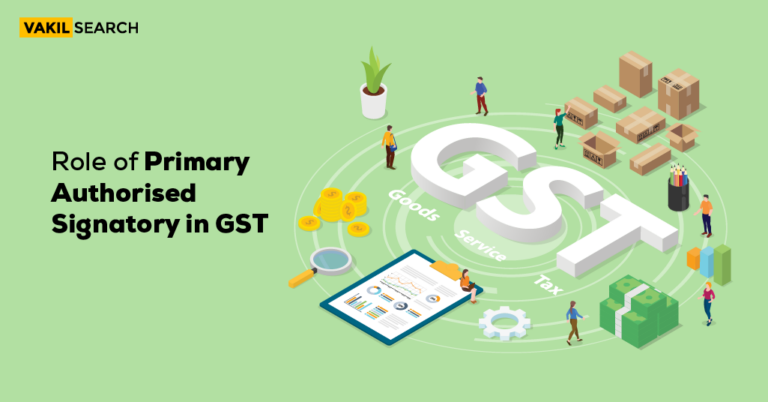Overview
The Ministry of Finance, through Notification No. 05/2022- Central Tax (Rate) dated July 13, 2022, introduced new GST rules for rent residential properties. These rules require landlords to charge GST on rent paid by tenants who are registered under GST. However, for tenants who are not registered, GST isn’t collected directly but must be paid by them through the Reverse Charge Mechanism (RCM).
GST, or Goods and Services Tax, applies to renting immovable property, but under specific conditions:
Who pays GST on Rent?
- GST-registered tenants: If you are a business or individual registered under GST and rent a residential property, you will be liable to pay 18% GST on the rent amount.
- Unregistered tenants: If you are not registered under GST and rent a residential property, you will not directly pay GST on the rent. However, the landlord may need to collect GST under the Reverse Charge Mechanism (RCM) if their annual turnover exceeds ₹20 lakh.
When is GST not applicable on Rent?
- Residential rent to unregistered tenants: If you are renting a residential property to someone who is not registered under GST and the landlord’s annual turnover is less than ₹20 lakh, then GST will not be applicable on the rent.
- Specific exemptions: Certain types of residential properties, such as those with rent below ₹1,000 per day or rented by religious trusts, may be exempt from GST.
New GST Rules for Rent
Attention GST-registered businesses and individuals renting residential properties! As of July 18th, 2022, you’re responsible for paying a new 18% tax on the rent (RCM). No need for landlords to collect it, you handle it directly with the government.
What is the GST on Rent?
The Goods and Services Tax (GST) has brought significant changes to how rental income is taxed in India. Here’s a breakdown of the key points:
Tax on rental income in the pre-GST era
Before GST, rental income was taxed under the Service Tax (ST) regime. The tax rate depended on the type of property and its location. Residential properties often attracted lower tax rates compared to commercial properties.
GST Rate for Rent
New GST Rules for Rent – Under the GST regime, the tax rate on rental income depends on the type of property and the tenant’s registration status:
- For residential property rented for residential use:
- Exempt from GST: If both the landlord and tenant are not registered under GST.
- 18% GST: If the tenant is registered under GST and uses the property for business purposes.
- For commercial property:
- 18% GST: Regardless of the tenant’s GST registration status.
Exemption from Payment of GST
Certain scenarios are exempt from paying GST on rent, including:
- Residential property rented for residential use: As mentioned above, if both parties are not GST registered.
- Rental income below Rs. 20 lakhs per year: If the landlord’s total annual rental income from all properties is less than Rs. 20 lakhs (around $24,000), they are exempt from GST registration and therefore do not need to pay GST on rent.
- Specific types of properties: Renting of agricultural land, religious places, and charitable institutions is also exempt from GST.
Residential Dwelling Renting for Residential Use
The term “residential dwelling renting for residential use” refers to the act of a landlord leasing a property (house, apartment, etc.) to a tenant for the tenant living there as their primary residence. This is the most common type of rental agreement, and in most cases, it is exempt from taxes like Goods and Services Tax (GST) in India.
Here are some key things to know about residential dwelling renting for residential use:
Tax implications:
- Exemption: Generally, renting a residential dwelling for residential use is exempt from GST in India, as long as the tenant is not registered under GST. This means there is no tax levied on the rent amount.
- Reverse Charge Mechanism (RCM): If the tenant is registered under GST, the tax liability shifts to the tenant under the RCM. This means the tenant needs to pay the GST, calculated at 18%, on the rent amount. However, there are some exceptions to this rule, such as if the tenant rents the property in their personal capacity for their own residence and not for business purposes.
- Local variations: It’s important to note that tax regulations can vary depending on the location in India. Always check with the local tax authorities or a tax advisor for the specific rules and regulations in your area.
Agreement terms:
- Lease agreement: A standard lease agreement is typically used to outline the terms and conditions of the rental, including the rent amount, lease term, security deposit, maintenance responsibilities, and termination clauses.
- Utilities: Depending on the agreement, the landlord or tenant may be responsible for paying for utilities such as water, electricity, and garbage disposal.
- Repairs and maintenance: The agreement should specify who is responsible for repairs and maintenance of the property.
|
Tenant |
Landlord | GST |
ITC |
| Registered under GST | Registered under GST | GST under RCM | ITC can be claimed if the property is taken on rent for the furtherance of business |
| Unregistered | Registered under GST | No GST | Non Applicable |
| Unregistered | Unregistered | No GST | Non Applicable |
| Registered under GST | Unregistered | GST under RCM | ITC can be claimed if the property is taken on rent for the furtherance of business |
FAQ
What is the new circular of GST on rent?
There hasn't been a major new circular on GST and rent recently. The latest significant change happened in December 2022: if a residential property is rented to a GST-registered person for personal use (not business), they won't be liable for GST. However, it's always advisable to check with the local tax authorities for any updates.
What is the new GST rule for rental property?
The main rule remains: renting a residential dwelling for residential use is generally exempt from GST. However, if the tenant is a GST-registered person and uses the property for business, they'll be liable for GST under the Reverse Charge Mechanism (RCM) at 18% on the rent.
What is the new GST on room rent?
GST rules on room rent follow the same principles as residential property rent. If rented for personal use, it's exempt. If rented for business purposes by a GST-registered tenant, RCM applies at 18%.
What is the RCM rate for rent?
The RCM rate for rent is currently 18% on the taxable value (rent amount).
How do I avoid GST on rental income?
You can avoid GST on rental income by ensuring the property is rented for residential purposes and the tenant is not registered under GST. Alternatively, if the tenant is registered but uses the property for personal use, the new rule exempts them from GST.
Does the tenant have to pay tax on rent?
The tenant is only liable to pay GST on rent if they are a registered person and use the property for business purposes. Otherwise, the landlord is responsible for any applicable taxes.
Is GST applicable on PG rent?
Yes, GST is applicable on PG rent if the tenant is a registered person and uses the room for business purposes. If not, it's exempt.
Is there GST on room rent per day?
The type of accommodation (daily or monthly) doesn't affect the GST applicability. It depends on whether the tenant is registered and uses the room for business.
Is GST applicable on room rent below 5000?
No, GST is not applicable on rent for rooms or residential dwellings with a monthly rent below Rs. 5,000.
How much rent income is tax-free in India?
There's no specific tax-free limit for rental income in India. However, if your total income (including rent income) falls below the taxable limit (currently Rs. 2.5 lakhs per year), you wouldn't need to pay any income tax on your rent income.
Can we pay RCM on rent?
Yes, the tenant can voluntarily choose to pay GST under RCM on rent even if they aren't technically liable. This can be beneficial for claiming input credit on the GST paid.
Who is liable to pay GST on rent on commercial property?
The landlord is liable to pay GST on rent received for commercial property at 18% of the rent amount.










